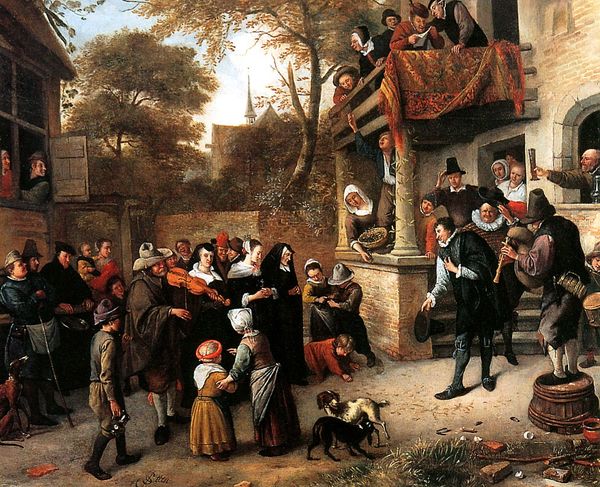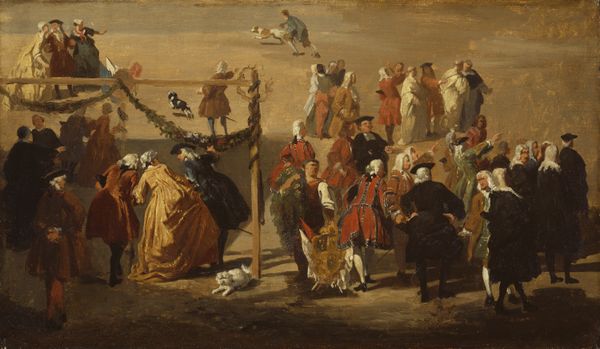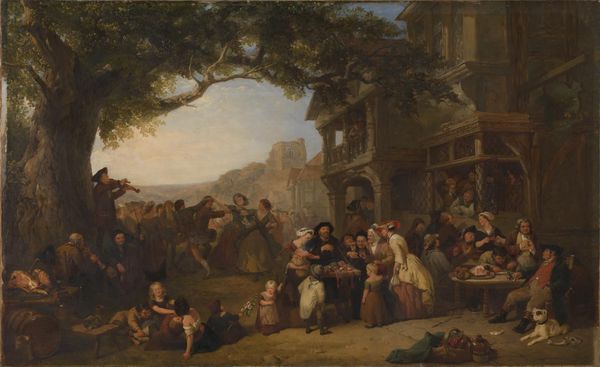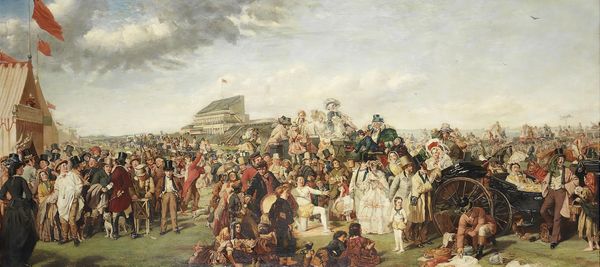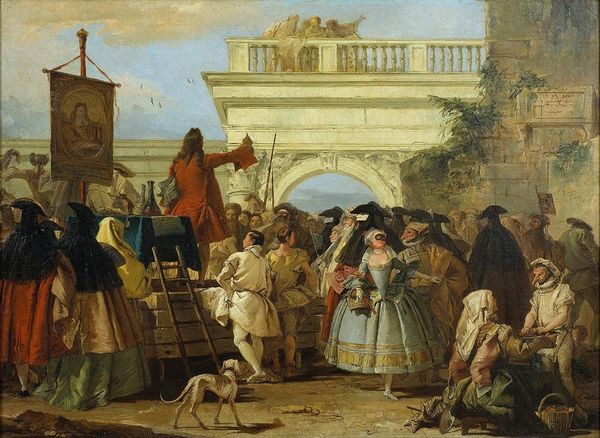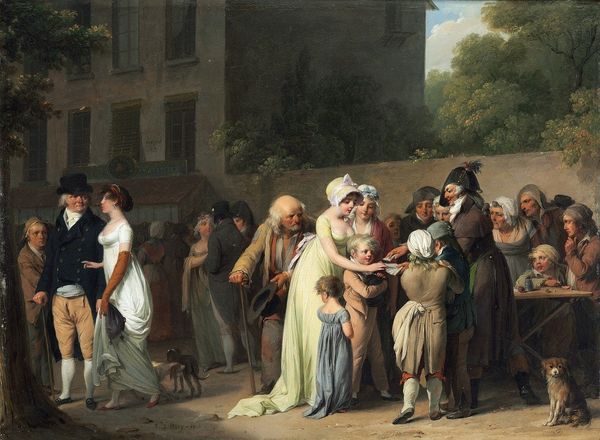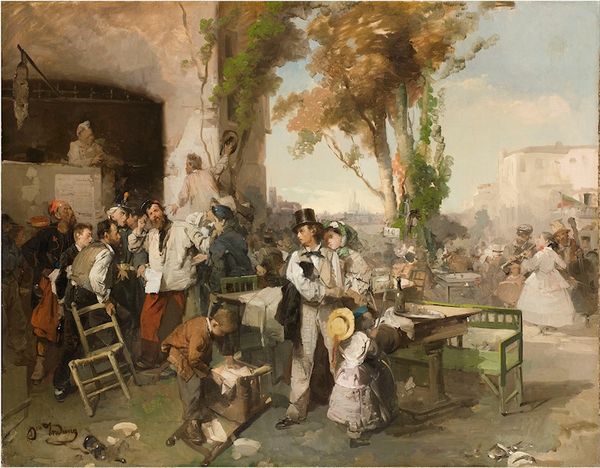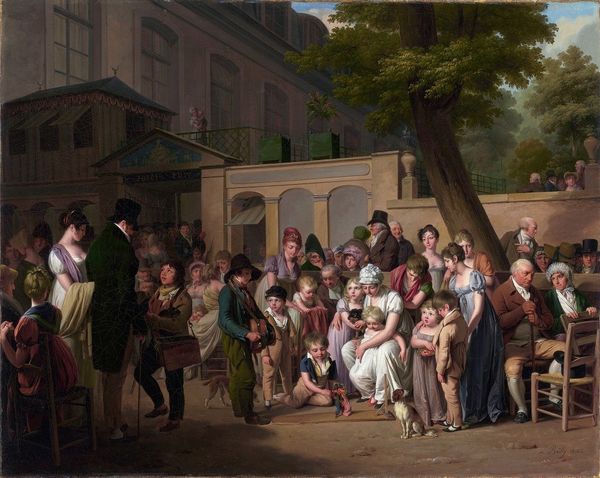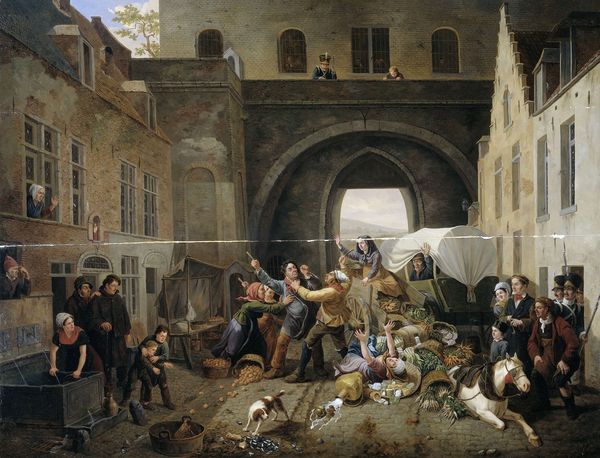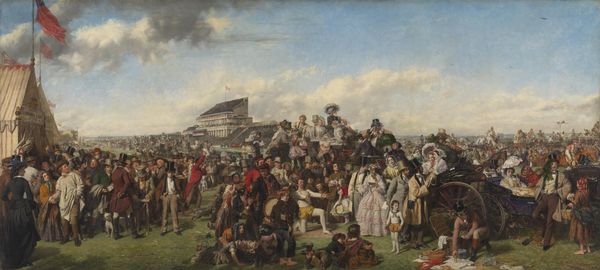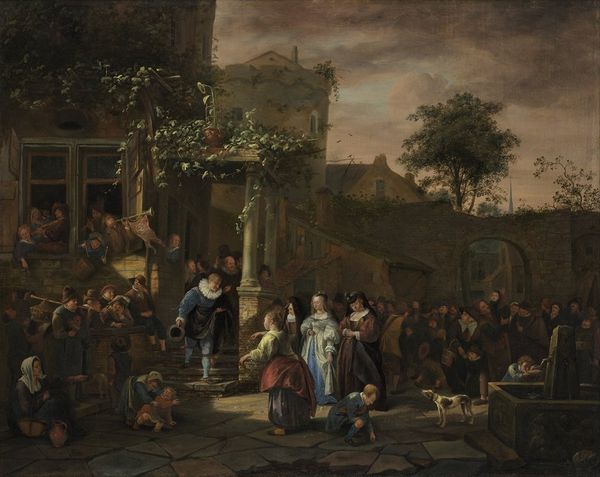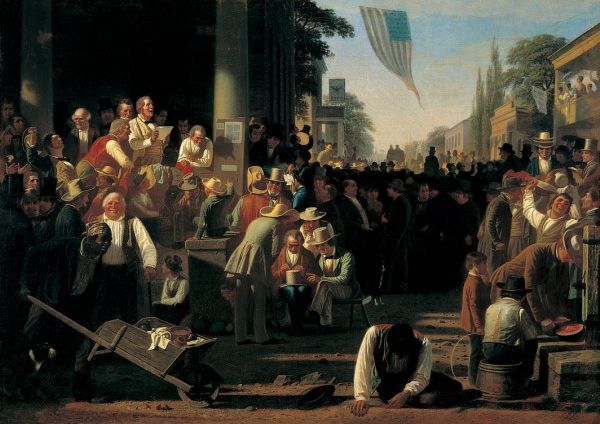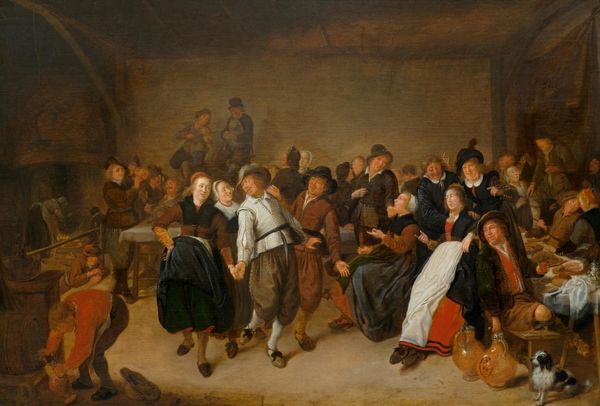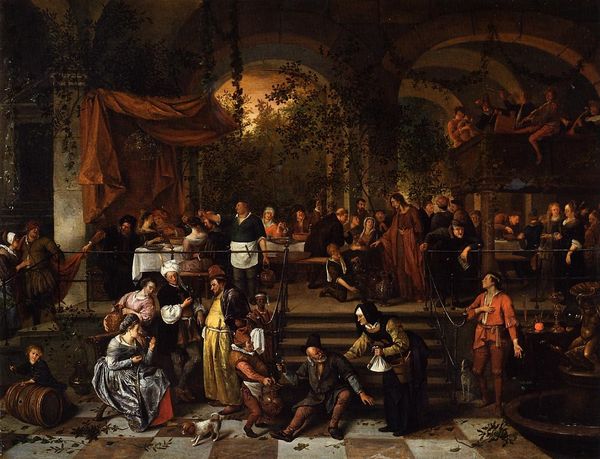
Dimensions: support: 1505 x 1851 mm frame: 2010 x 2270 x 165 mm
Copyright: CC-BY-NC-ND 4.0 DEED, Photo: Tate
Editor: This is Benjamin Robert Haydon's "Punch or May Day", housed at Tate Britain. It depicts a bustling street scene; the figures and architecture are quite dynamic. What do you see in this piece? Curator: I see a complex social commentary, a snapshot of class disparity perhaps? The May Day celebration juxtaposes the working class with the observing elite in their carriages. Editor: So, you're suggesting Haydon is using this festive scene to highlight social inequalities? Curator: Precisely. The painting can be interpreted as a critique of the privileged, passively witnessing the traditions of the working class. The Punch and Judy show, a form of popular entertainment, itself could be a symbol of social satire. What are your thoughts? Editor: I see that now. It’s interesting how a seemingly simple street scene can be so layered with meaning. Curator: Indeed. Art often holds a mirror to society.
Comments
tatebritain 10 months ago
⋮
http://www.tate.org.uk/art/artworks/haydon-punch-or-may-day-n00682
Join the conversation
Join millions of artists and users on Artera today and experience the ultimate creative platform.
tatebritain 10 months ago
⋮
Benjamin Haydon thought of calling this painting ‘Life’, hoping to capture a cross-section of London. A hearse nearly collides with a marriage coach and the newly-weds contrast with the violent couple in the popular puppet show, Punch and Judy. Haydon made this work five years before the abolition of Slavery in the British Empire. He deliberately placed the upright Black coachman with the caricatured performance of the soot-blackened chimney sweep close together, so viewers would connect the two figures. Although he later expressed regret at his beliefs, at the time Haydon held racist ideas about racial hierarchies. Gallery label, May 2023
